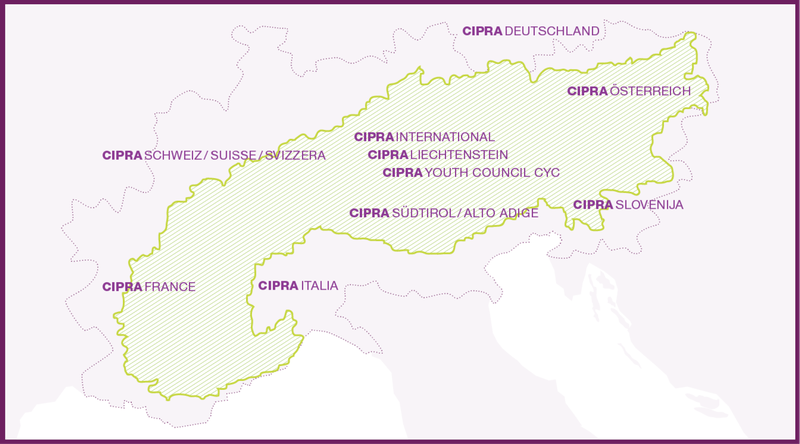Laura Haberfellner, CIPRA International Lab
Innovation to counter emigration
Emigration and the brain drain in the Alpine region: a new EU project involving CIPRA aims to counteract this trend. It is testing innovative governance models to strengthen mountain regions and create a win-win situation for regions of origin, destinations and young emigrants.
Who is CIPRA?
Find out more!
More articles
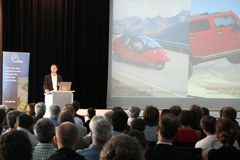
alpMedia | Schaan, LI
CIPRA Yearly Symposium: marginal creativity...
This year's CIPRA Symposium focuses on the socio-economic margins of the Alps. Why "margins"? Because the nearest hospital is a far away and the post office is only open in the morning; because the towns and cities are beckoning, and nature is gaining more and more ground. The prevailing process of urbanisation has little in the way of prospects to offer these mountain regions, whose potential is already low.

alpMedia | Schaan, LI
Photo-shooting the Alps
Time for photographers of the Alps to show off their best shots! The Permanent Secretariat of the Alpine Convention is organising a photo competition with the aim of publishing the twelve best photographs in a calendar. There will also be a special prize for each published photograph.

alpMedia | Schaan, LI
A milestone for alpMedia
With its current issue CIPRA's three-weekly Newsletter alpMedia is going out to more than 25'000 people throughout the Alps for the first time. CIPRA launched the alpMedia information project during the International Year of the Mountains 2002, and at that time the Newsletter was sent to just 1'700 people.
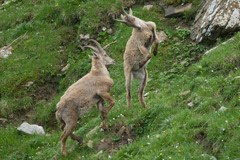
alpMedia | Schaan, LI
Gran Paradiso National Park: what is causing young ibexes to die out?
Since the foundation of Italy's first national park in 1922, the Alpine Ibex has been preserved from extinction for the past 100 years or so. Now the ibex population at the Gran Paradiso National Park/I is seriously at risk. Three quarters of the young animals are dying during their first year of life. In 1993 the population totalled around 5'000 animals; today the population at the Gran Paradiso National Park is just under half that number. It is still unclear what is causing the death of the young bi-ungulates.
Events
|
RECHARGE EUROPE | Alpbach (Austria) |
Projects
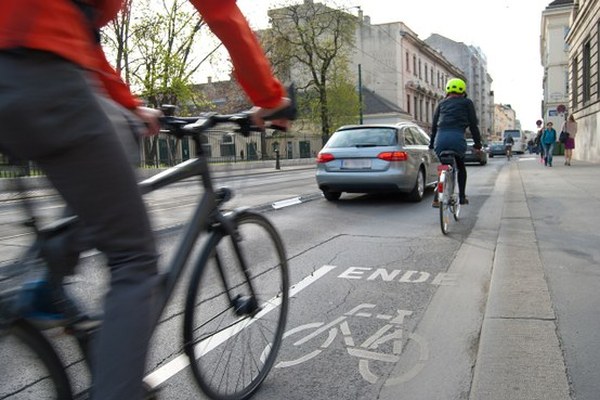
CIPRA International
Cross-border mobility
[Project completed] Tens of thousands of commuters move across national borders every day in the Alpine region. Existing traffic routes, however, were mostly built with a purely national perspective and are not geared to cross-border commuter flows. The result is overloaded roads, noise and pollution for local residents.

CIPRA International Lab
PlurAlps
[Project completed] The Alpine area is experiencing the combined challenges of an ageing population and new migration models. At the same time, opportunities for social innovation and development arise from increasing cultural diversity and pluralism. Mountainous and peripheral Alpine municipalities and regions are specifically concerned and need technical support and new approaches to develop a welcoming culture, which should be credibly embraced and implemented by municipalities, SMEs and civil society.
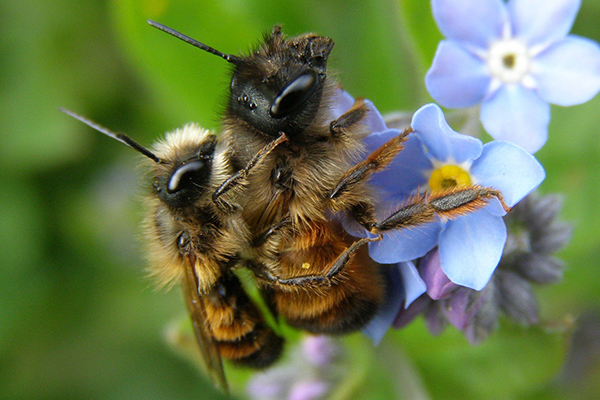
CIPRA International
BeeAware!
[Project completed] The aim of the project BeeAware! is to inspire communities in the Alps for bee protection and thus to improve the livelihoods of honey and wild bees. Bees are depending on an intact biodiversity. The different bee species need different plants, nesting and drinking places in order to survive. Integral bee protection therefore means securing, improving and enlarging the habitat of these important pollinators.

